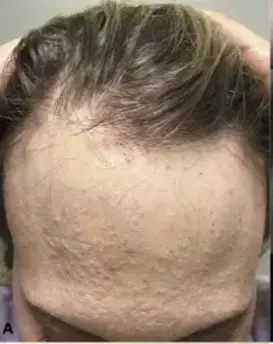- Home
- Medical news & Guidelines
- Anesthesiology
- Cardiology and CTVS
- Critical Care
- Dentistry
- Dermatology
- Diabetes and Endocrinology
- ENT
- Gastroenterology
- Medicine
- Nephrology
- Neurology
- Obstretics-Gynaecology
- Oncology
- Ophthalmology
- Orthopaedics
- Pediatrics-Neonatology
- Psychiatry
- Pulmonology
- Radiology
- Surgery
- Urology
- Laboratory Medicine
- Diet
- Nursing
- Paramedical
- Physiotherapy
- Health news
- Fact Check
- Bone Health Fact Check
- Brain Health Fact Check
- Cancer Related Fact Check
- Child Care Fact Check
- Dental and oral health fact check
- Diabetes and metabolic health fact check
- Diet and Nutrition Fact Check
- Eye and ENT Care Fact Check
- Fitness fact check
- Gut health fact check
- Heart health fact check
- Kidney health fact check
- Medical education fact check
- Men's health fact check
- Respiratory fact check
- Skin and hair care fact check
- Vaccine and Immunization fact check
- Women's health fact check
- AYUSH
- State News
- Andaman and Nicobar Islands
- Andhra Pradesh
- Arunachal Pradesh
- Assam
- Bihar
- Chandigarh
- Chattisgarh
- Dadra and Nagar Haveli
- Daman and Diu
- Delhi
- Goa
- Gujarat
- Haryana
- Himachal Pradesh
- Jammu & Kashmir
- Jharkhand
- Karnataka
- Kerala
- Ladakh
- Lakshadweep
- Madhya Pradesh
- Maharashtra
- Manipur
- Meghalaya
- Mizoram
- Nagaland
- Odisha
- Puducherry
- Punjab
- Rajasthan
- Sikkim
- Tamil Nadu
- Telangana
- Tripura
- Uttar Pradesh
- Uttrakhand
- West Bengal
- Medical Education
- Industry
Facial care products use not linked to frontal fibrosing alopecia, Reports Study

Source- Pham, C. T., Hosking, A. M., Cox, S., & Mesinkovska, N. A. (2020). Therapeutic response of facial papules and inflammation in frontal fibrosing alopecia to low-dose oral isotretinoin. JAAD case reports, 6(5), 453–456. https://doi.org/10.1016/j.jdcr.2020.01.030
Increasing incidence of frontal fibrosing alopecia (FFA) suggests that environmental factors may be related to the pathogenesis. Recent studies reported potential association between the use of facial care products and frontal fibrosing alopecia.
However, the high frequency use of moisturizer and sunscreen does not cause frontal fibrosing alopecia, suggest a recent study.
The study is published in the Journal of Dermatology.
Frontal fibrosing alopecia (FFA) is a relatively newly described scarring alopecia known as a clinical variant of lichen planopilaris. Frontal fibrosing alopecia is characterized by slowly progressive scarring alopecia on the hairline and affects explicitly postmenopausal women.
Waroonphan Leecharoen and colleagues from the Department of Dermatology, Faculty of Medicine Siriraj Hospital, Mahidol University, Bangkok, Thailand conducted the study with the aim to investigate the possible association between the use of facial care products and frontal fibrosing alopecia in Asian females.
The authors included a total of 250 females, out of which 50 were frontal fibrosing alopecia patients, 100 patients had pattern hair loss [PHL] , and 100 normal controls were recruited and completed a questionnaire to obtain information approximately facial care products and various environmental factors.
The results showed that the use of moisturizer to be significantly higher in the frontal fibrosing alopecia group compared to normal controls (p < 0.001), and sunscreen use was significantly higher in the pattern hair loss group than in the control group (adjusted p < 0.001).
Furthermore, the subjects with frontal fibrosing alopecia or pattern hair loss reported significantly higher use of both sunscreen and moisturizer compared to normal controls (p < 0.001).
This study focused on Asian populations. The results revealed a high frequency of moisturizer and sunscreen use in both frontal fibrosing alopecia and pattern hair loss among Asian females.
Therefore, it was concluded that the use of facial care products appears not to be linked to the true disease mechanism of frontal fibrosing alopecia, but rather to appearance-related concerns of patients.
https://doi.org/10.1111/1346-8138.16063
Dr. Nandita Mohan is a practicing pediatric dentist with more than 5 years of clinical work experience. Along with this, she is equally interested in keeping herself up to date about the latest developments in the field of medicine and dentistry which is the driving force for her to be in association with Medical Dialogues. She also has her name attached with many publications; both national and international. She has pursued her BDS from Rajiv Gandhi University of Health Sciences, Bangalore and later went to enter her dream specialty (MDS) in the Department of Pedodontics and Preventive Dentistry from Pt. B.D. Sharma University of Health Sciences. Through all the years of experience, her core interest in learning something new has never stopped. She can be contacted at editorial@medicaldialogues.in. Contact no. 011-43720751
Dr Kamal Kant Kohli-MBBS, DTCD- a chest specialist with more than 30 years of practice and a flair for writing clinical articles, Dr Kamal Kant Kohli joined Medical Dialogues as a Chief Editor of Medical News. Besides writing articles, as an editor, he proofreads and verifies all the medical content published on Medical Dialogues including those coming from journals, studies,medical conferences,guidelines etc. Email: drkohli@medicaldialogues.in. Contact no. 011-43720751


